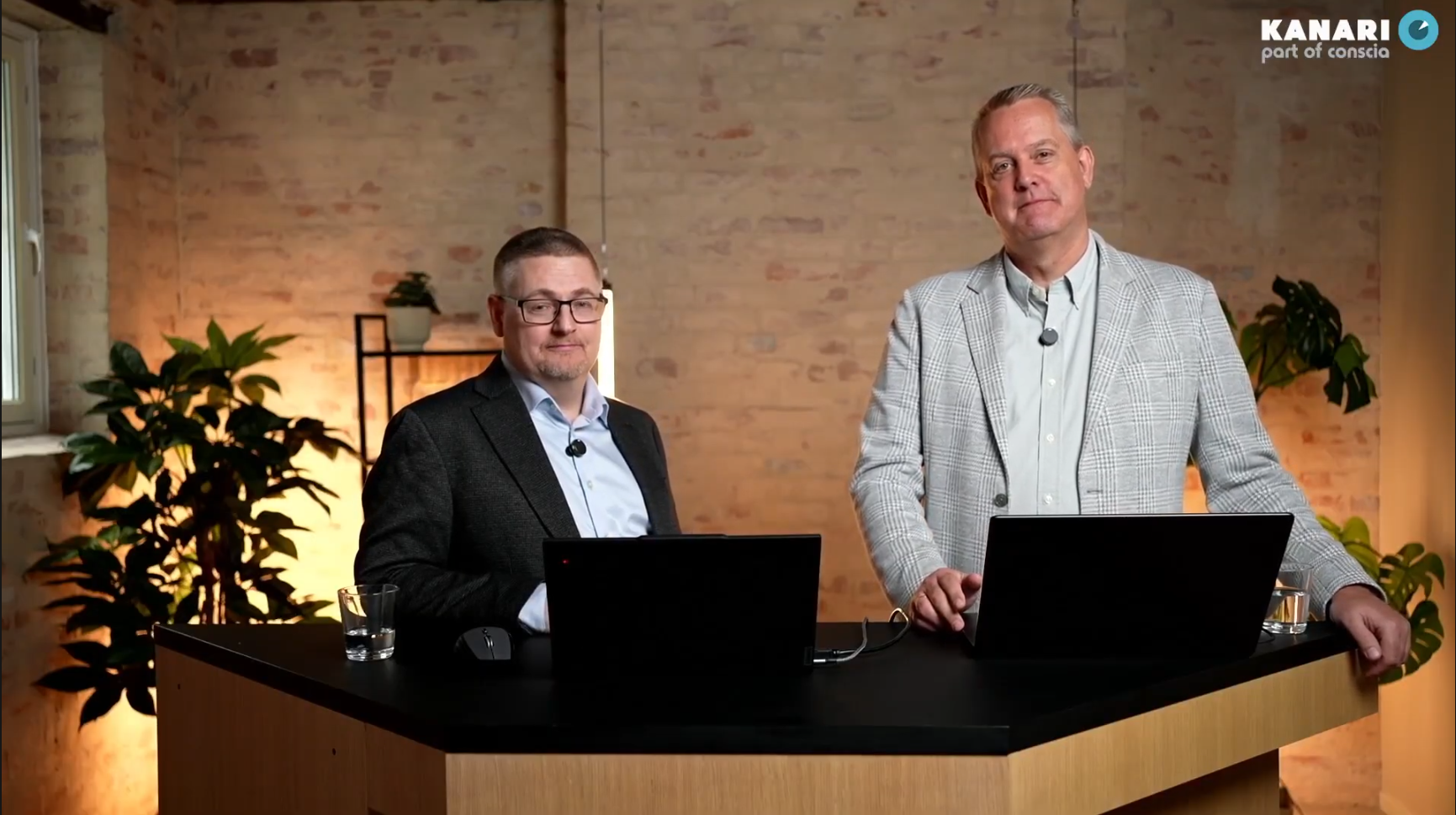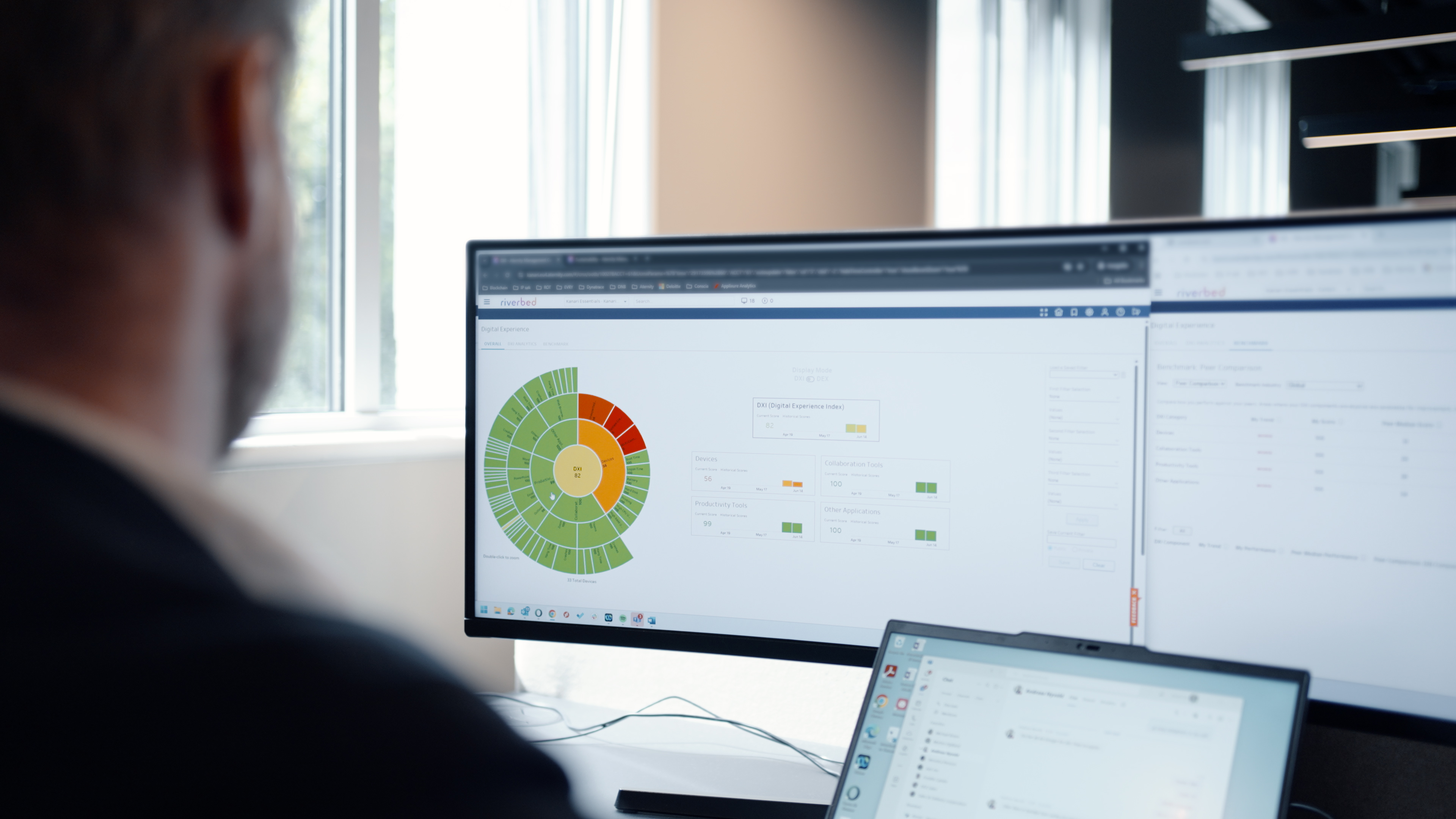From Helpdesk Headaches to Proactive IT: Rethinking Digital Employee Experience
“I’m not sure what’s wrong—it just crashes sometimes.”
4 min read
Michiel van Herpen : Jul 9, 2025 12:43:32 PM

At the time of writing, I have just started working for Kanari as a Digital Employee Experience (DEX) specialist. While the welcome was warm, I immediately encountered a few hiccups: no access to the learning management system (LMS) and error messages when trying to log into the HR system.
Frustrating? Absolutely. Ironic? That, too, because as a DEX specialist, it’s my job to improve these kinds of digital experiences. Unfortunately, my situation is not unique. Many employees face digital obstacles daily. And that’s the core of this article: the complexity, the challenge, and the opportunity of digital employee experience (DEX).
Technology causes more frustration in the workplace than we often realize, or care to admit. When starting a new job, a smoothly functioning IT system is essential. You already have enough on your mind without needing to ensure you have working access to all the necessary systems. But even throughout the rest of your career, a well-functioning IT landscape remains crucial. Especially now that the working world has become increasingly digital, mobile, and hybrid.
Everyone knows the frustration when something doesn’t work the way it should. A computer freezes, an application crashes, or you can’t access a certain tool. All of it ends up costing you more time than you’d like.
The interaction between employees and their digital work environment is a crucial part of what we call Digital Employee Experience (DEX). DEX plays a major role in creating a pleasant, frustration-free workplace and an efficient work experience. A good digital employee experience means fewer frustrations and obstacles, allowing you to focus on your actual work
Digital Employee Experience (DEX) refers to the interaction employees have with the digital tools and systems they need to do their jobs. This includes everything from laptops and mobile devices to applications, cloud solutions, and collaboration platforms. The smoother this digital experience, the more productive and satisfied employees tend to be.
True DEX success isn’t owned by IT alone; it lives at the crossroads of technology and business strategy. It touches every corner of the organization, from HR and communications to operations. Every department has a stake in shaping the digital experience because it directly influences employee engagement, morale, and productivity. Improving DEX is a shared responsibility. And a shared opportunity.
A well-designed DEX strategy means companies don’t just deliver technology and applications, but ensure the technology works in a reliable, understandable, and seamless way. This can only be achieved by investing in user-friendly software, modern hardware, and solid IT support. In addition, organizations must continuously measure and analyze the digital experience to stay attuned to employee needs.
Hybrid and remote work are the new standard. A strong DEX strategy is now essential. Employees expect to work without hassle, from anywhere. When systems are slow or crash, it leads to frustration and reduced motivation. In the long run, it even affects employee engagement and turnover rates:
A key challenge is that organizations are losing visibility and control over the IT environments of remote workers. Home networks and personal devices make direct oversight more difficult. For instance, the company intranet may be accessed via a personal phone, and internet speeds vary. This calls for a proactive approach where IT collaborates with other departments to fully support employees in their digital work experience.
A well-executed DEX strategy benefits both employees and the organization:
To prevent frustration and optimize the digital experience, it’s essential to gather and analyze large amounts of data on the performance of systems, applications, and devices. Are systems crashing? Which applications perform poorly or crash frequently? Are devices outdated, or do they still have sufficient memory? In short, what are the trends and expectations within the IT landscape, and how can you align your strategy and policies effectively?
Answering these questions is not just the responsibility of the IT department. DEX goes beyond traditional IT duties and requires collaboration across the entire organization. Departments such as IT, HR, Communications, and Operations must work together to truly understand what employees need.
With experience supporting 60+ customers, we have found that establishing a multidisciplinary DEX team is a huge key to success. Bring together all relevant stakeholders to design and continuously improve the digital workplace. By using shared insights and objectives, combined with employee feedback, organizations can build a targeted, effective DEX strategy.
Kanari supports organizations in setting up such a DEX team and offering a managed service that goes beyond simply delivering technology. We help teams generate valuable data, understand it, and apply it effectively. By actively involving customers throughout the entire process, we help increase internal awareness and strengthen knowledge around digital workplaces. In this way, we create sustainable value together, with a strong focus on learning and continuous improvement. For instance, one of our enterprise clients in the public sector reduced employee support tickets by 30% within six months after forming a DEX team guided by our process. By working hand-in-hand with our clients, we build knowledge, increase awareness, and drive continuous improvement.
Working in this way enables organizations to build a digital environment that genuinely supports employees in their day-to-day work. Technology has to contribute to productivity, not hinder it. Investing in a strong DEX strategy increases productivity, job satisfaction, and employee engagement.
Curious how to turn DEX insights into real impact? Let’s explore how Kanari can help make work… well, work better.

“I’m not sure what’s wrong—it just crashes sometimes.”

Your people want smooth tools. Your IT team needs control. Our new private cloud delivers both.

Morten Hjalland studied at the BI Norwegian Business School, and has more than 25 years of operational experience, as an employee of large...